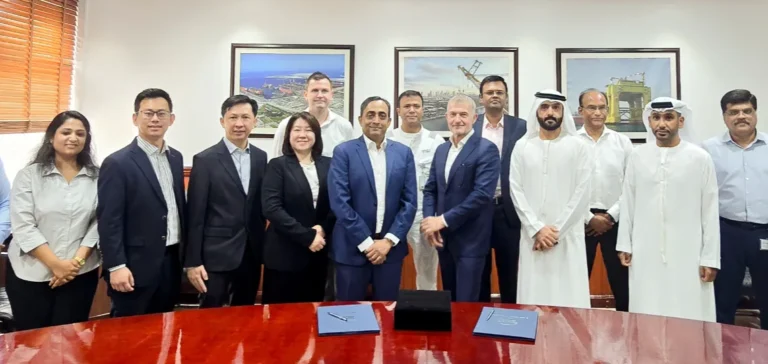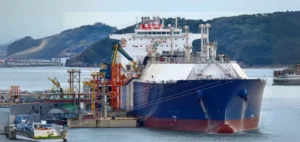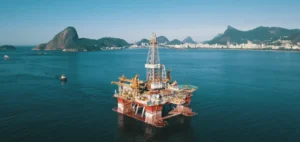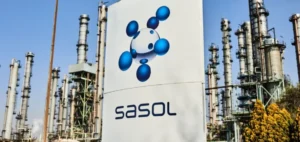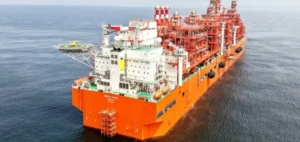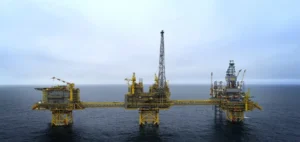AMIGO LNG SA de CV, a joint venture between Texas-based Epcilon LNG LLC and Singapore’s LNG Alliance Pte Ltd, has awarded Drydocks World an Engineering, Procurement, and Construction (EPC) contract for the development of the world’s largest floating liquefied natural gas (LNG) terminal. The project includes the conversion of Floating Storage Units (FSU) and the construction of new liquefaction barges integrating U.S.-based pretreatment and liquefaction technologies.
The upcoming terminal will have an annual production capacity exceeding 4.2 million tonnes of LNG. Under the terms of the contract, Drydocks World will deliver process modules and systems designed to ensure continuous and reliable production. All fabrication will take place at the Dubai shipyard, recognized for its facilities tailored to offshore projects and large-scale energy infrastructure.
A strategic construction site in Dubai
The construction of the floating LNG terminal relies on Drydocks World’s industrial expertise, particularly in offshore conversions and complex fabrications. Located in Dubai, the shipyard enables controlled-environment manufacturing, combining offshore assembly with onshore preparation. This approach shortens delivery times and improves cost efficiency compared to traditional land-based LNG plants.
At the same time, converted Floating Storage Units will complete the infrastructure to support export operations. The project also includes testing and a pre-commissioning phase before delivery, ensuring faster and more efficient deployment.
A new export platform
The terminal will be located in Guaymas, Mexico, and supplied with gas from the U.S. Permian Basin, one of the most prolific in the world. The aim is to position the site as a competitive LNG export hub to Asia and Latin America. This strategic location addresses growing regional demand while leveraging a stable and abundant supply.
The combination of floating liquefaction technology with converted storage infrastructure makes this project a benchmark in the LNG sector. The development reflects the growing role of floating solutions as an alternative to onshore terminals in regions with rising energy demand.


